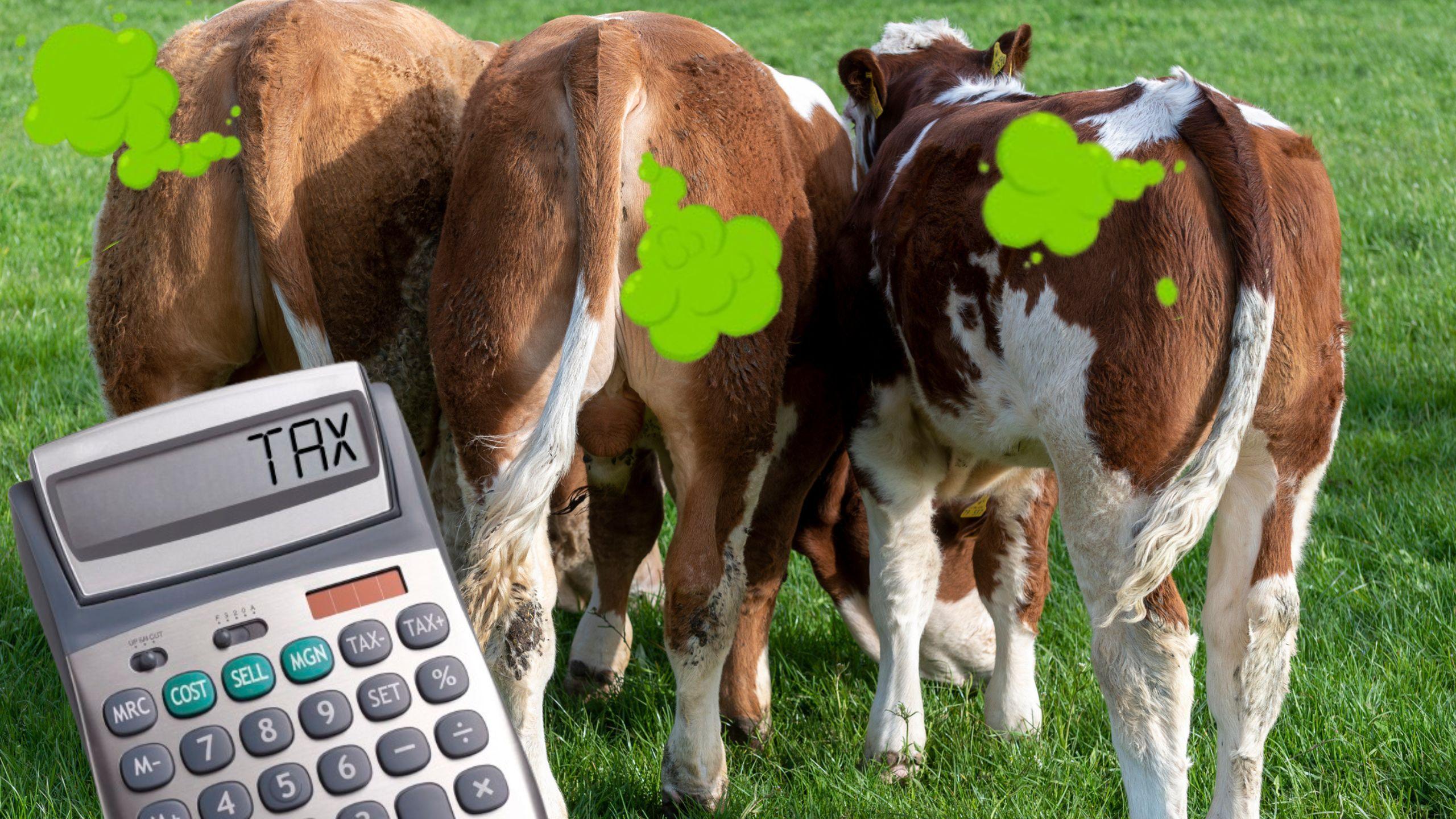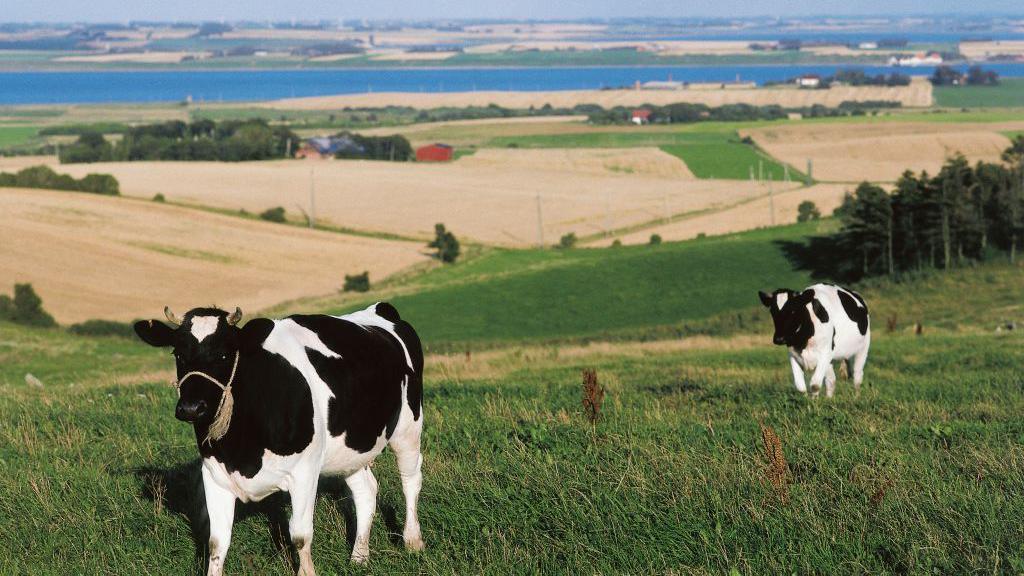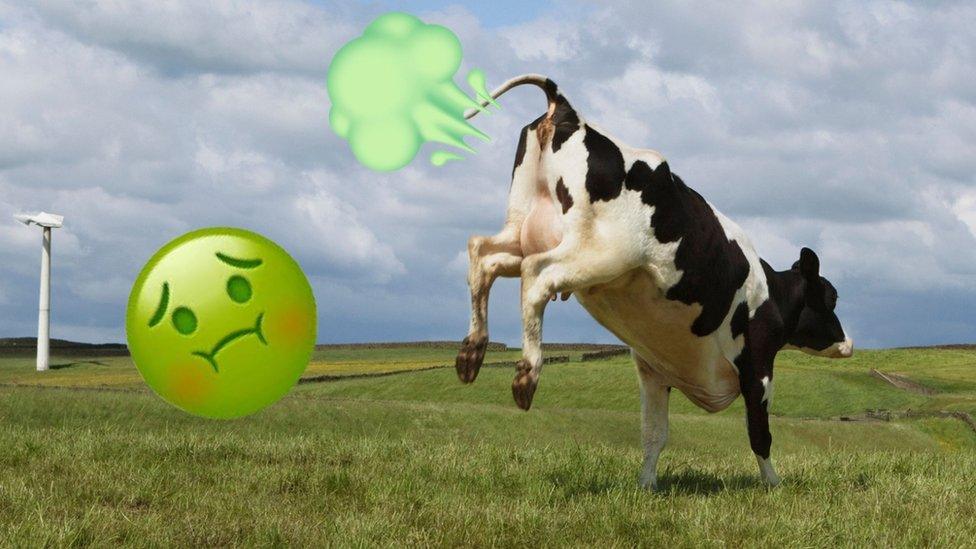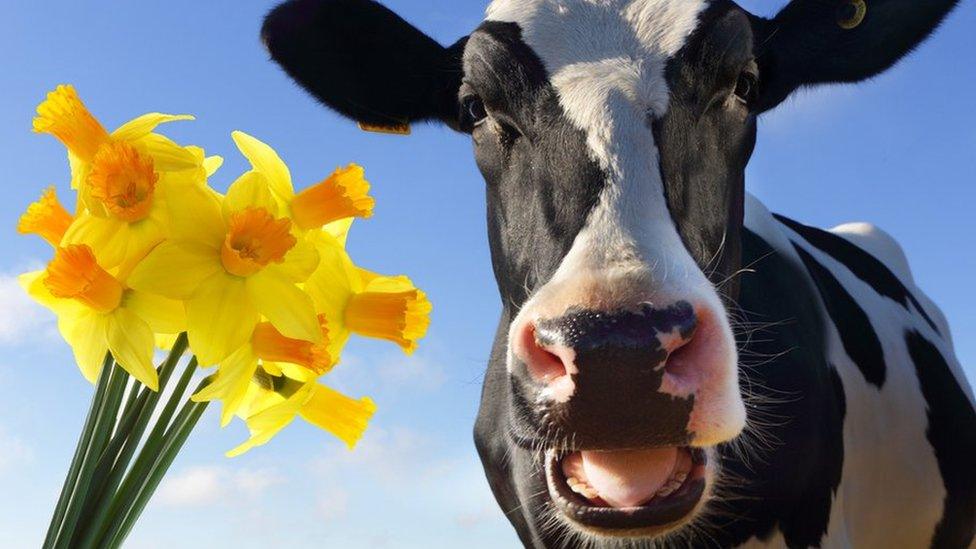The world's first 'fart tax' to be introduced in Denmark

A new tax on agricultural emmisions will be enforced from 2030
- Published
From 2030, farmers in Denmark will have to pay a tax for their animals' farts.
This is because cow, sheep and pig burps and farts produce a greenhouse gas called methane, which contribute to global warming and climate change.
The "flatulence tax" means farmers will have to pay 300 kroner (£34) per tonne of methane that their animals produce in a bid to drive down Denmark's emissions.
This has been decided after months of debate between the country's major political parties, Danish farmers, trade unions and environmental groups.
It is called The Green Tripartite agreement.
Why is Denmark doing this?

Around 60% of Denmark's territory is currently cultivated, which means it is farmed.
Therefore, the farming industry is responsible for a large proportion of Denmark's pollution.
According to a 2023 report, the Danish agricultural industry had not reduced its greenhouse gas emissions for more than ten years.
But the new Green Tripartite agreement aims to reduce the whole nation's CO2 emissions by up to 2.35 million tonnes by 2032.
The minister leading the project, Jeppe Bruus, said they will “do what it takes to reach our climate goals”.
The plan includes trying to improve the biodiversity of the country by replacing farm land with over 250,000 hectares of new forest, according to Danish news outlet The Copenhagen Post.
They hope this will, in turn, improve the waterways around the country and improve drinking water.
- Published18 March 2021

- Published11 July 2023

